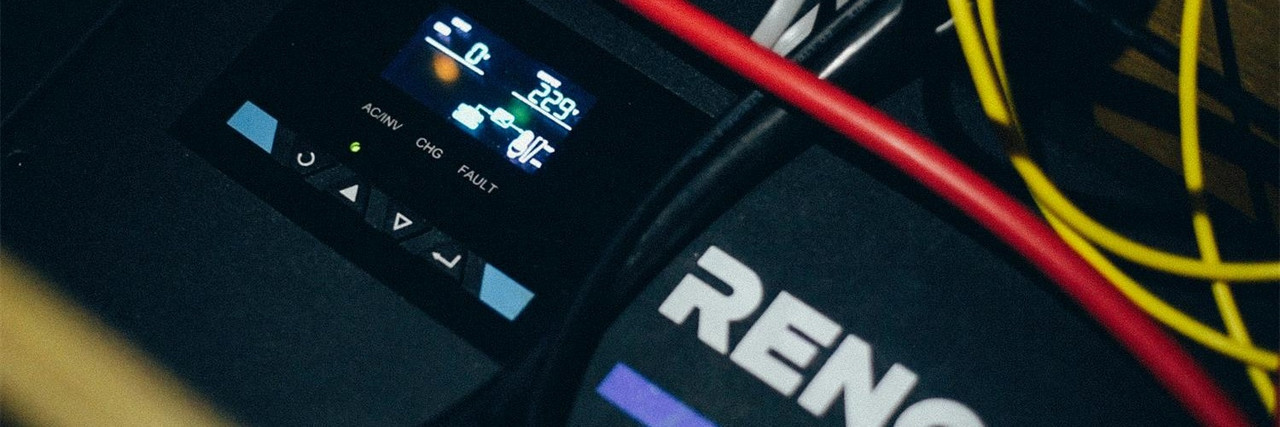Should you purchase a solar inverter charger?
Should you purchase a solar inverter charger?
Deciding on an inverter charger for your solar installation
We all know inverters are an important part of every solar installation. Essentially serving as the gateway between your solar panels and the devices and appliances you want to run in your household, inverters turn DC output into AC energy your appliances can use. If you have solar panels installed on your RV or van, another component worth the consideration is a solar inverter charger. Solar inverter chargers are versatile, reliable, and can make your existing solar installation even more powerful.
What do inverters do and why do I need them?
As mentioned above, inverters turn the DC output collected from your solar panels into alternating current (AC), which is the standard used by all commercial appliances. Standalone inverters need a battery bank to function.
Do I need a solar inverter charger?
In short, an inverter charger is capable of doing everything a regular inverter . can, in addition to being able to charge the battery bank using shore power when available.
Solar inverter chargers are a powerful, multitasking device. As the name suggests, solar inverter chargers fulfill both inverter and charging roles.With a Renogy Inverter Charger, you get the capabilities of both an inverter and a DC charger. You'll be able to convert DC electricity into usable AC electricity, while simultaneously charging your batteries with shore power. Renogy offers a few solar inverter charger options for purchase, including the Renogy 3000W pure sine wave inverter charger . and if you have smaller needs, the 2000w inverter charger . Inverter chargers are great for RV’s, boats, and other off-grid applications because the inverter charger can charge the battery bank from shore power, and the inverter will then convert the DC power to run AC loads in the space.

Who should purchase a solar inverter charger?
Solar inverter chargers are especially handy when you’re in areas where you may not be getting enough sunlight alone to charge your battery bank.
What’s the difference between pure sine wave and modified sine wave inverters?
You’ll see that Renogy only offers pure sine wave inverter chargers. What’s the difference between pure sine wave and modified sine wave inverters?
Pure Sine Wave Inverters: Pure sine wave inverters produce smooth, quiet, and reliable electricity to operate appliances and electronics without any interference. As its name suggests, pure sine wave inverters produce current in a pure sine wave shape. Renogy inverters also provide overload protection for both DC input and AC output to prevent damage to the components and the unit.
Modified Sine Wave Inverters: In modified sine wave inverters, the polarity abruptly switches from positive to negative versus a true sine wave. When looking at the wave, it has a stair-step, square pattern, where the polarity is flipped back and forth. Modified sine wave inverters can negatively affect delicate, sensitive equipment. So if you have medical equipment you need to power, such as a CPAP machine, you won’t be able to use a modified sine wave inverter. Additionally, in many cases, you’ll hear a hum with devices attached to a modified sine wave inverter. However, with simple devices and appliances, modified sine wave inverters can typically do the job.
What type of batteries can I charge with a solar inverter charger?
The inverter charger can charge sealed, gel, and flooded lead acid batteries. So if you have a lithium iron phosphate battery, a solar inverter charger will not be compatible.
What is a transfer switch?
A transfer switch allows the inverter to switch between the AC shore power and AC inverter mode (DC to AC), allowing electronics to continue working without any interruptions.
What size solar inverter charger do I need for my system?
In addition to using a We recommend adding up the rated watts of the loads that you intend to run at the same time. For example, let’s say you are using devices such as a fan, an LED light, and a water pump. If those loads add up to a total wattage consumption of 600-watts per hour, we would recommend a 1,000-watt inverter charger.
How do I size my system?
As a general rule of thumb, you’ll want an inverter charger to at least match the watts and voltage of your solar panel installation. You’ll want to refer to the specifications for your solar panels to determine the exact solar array to inverter ratio. Need help deciding how much solar power you’ll need to meet your energy needs? Use the Renogy solar calculator to determine your needs.
Is 12 volts enough to meet my energy needs? What about 24 or 48 volt systems?
Renogy solar inverter chargers are available as 12 volt chargers and are compatible with 12v systems. RVs and motorhomes typically already have 12 volt batteries for lighting, hot water heater controls, AC/heating controls, and refrigerators. Therefore, it makes sense to use the same voltage that already works for that system. 12 volt systems are typically suitable for those living in RV’s, small cabins, tiny homes, or camper trailers. However, if your energy needs are around 1,000 to 5,000 watts, we’d recommend opting for a 24 volt system.
Conclusion
As you can see, solar inverter chargers can make a big difference in giving you the peace of mind that you’ll have reliable access to electricity to keep your battery bank charged, no matter the conditions or season. When you need extra charging capabilities and have access to shore power, solar inverter chargers are a great device to have in your solar installation.






